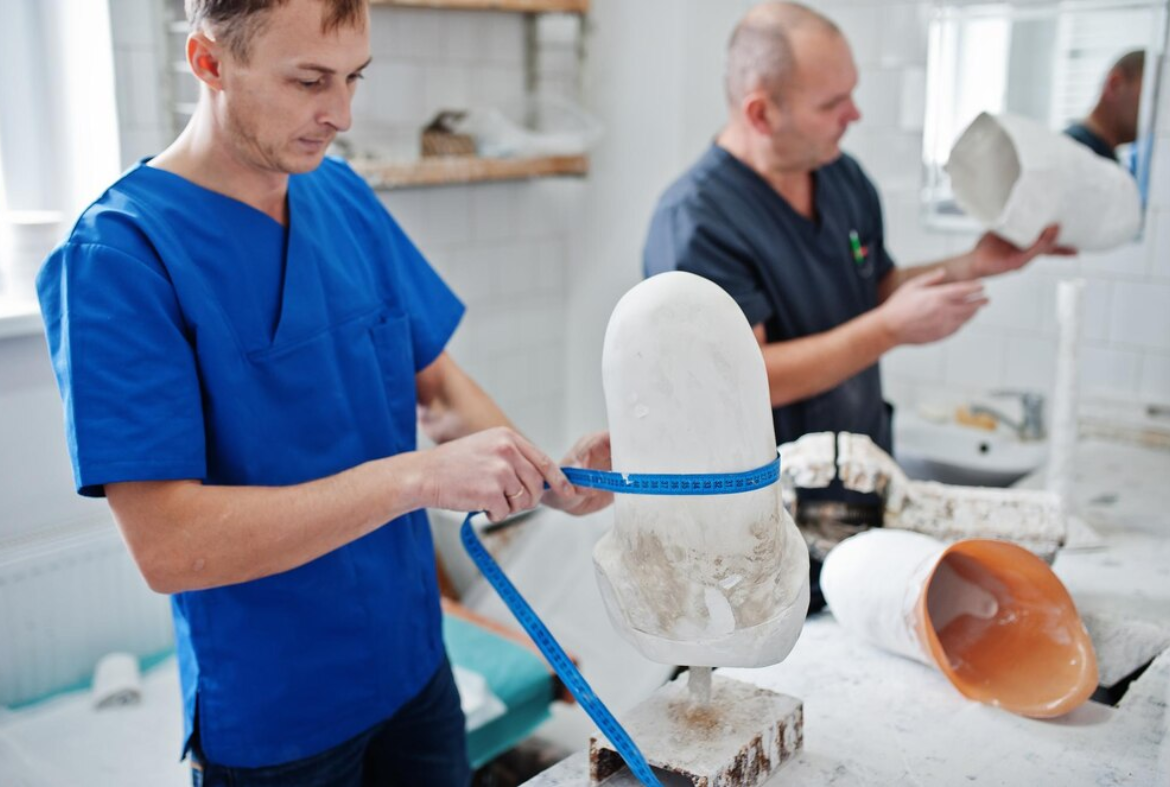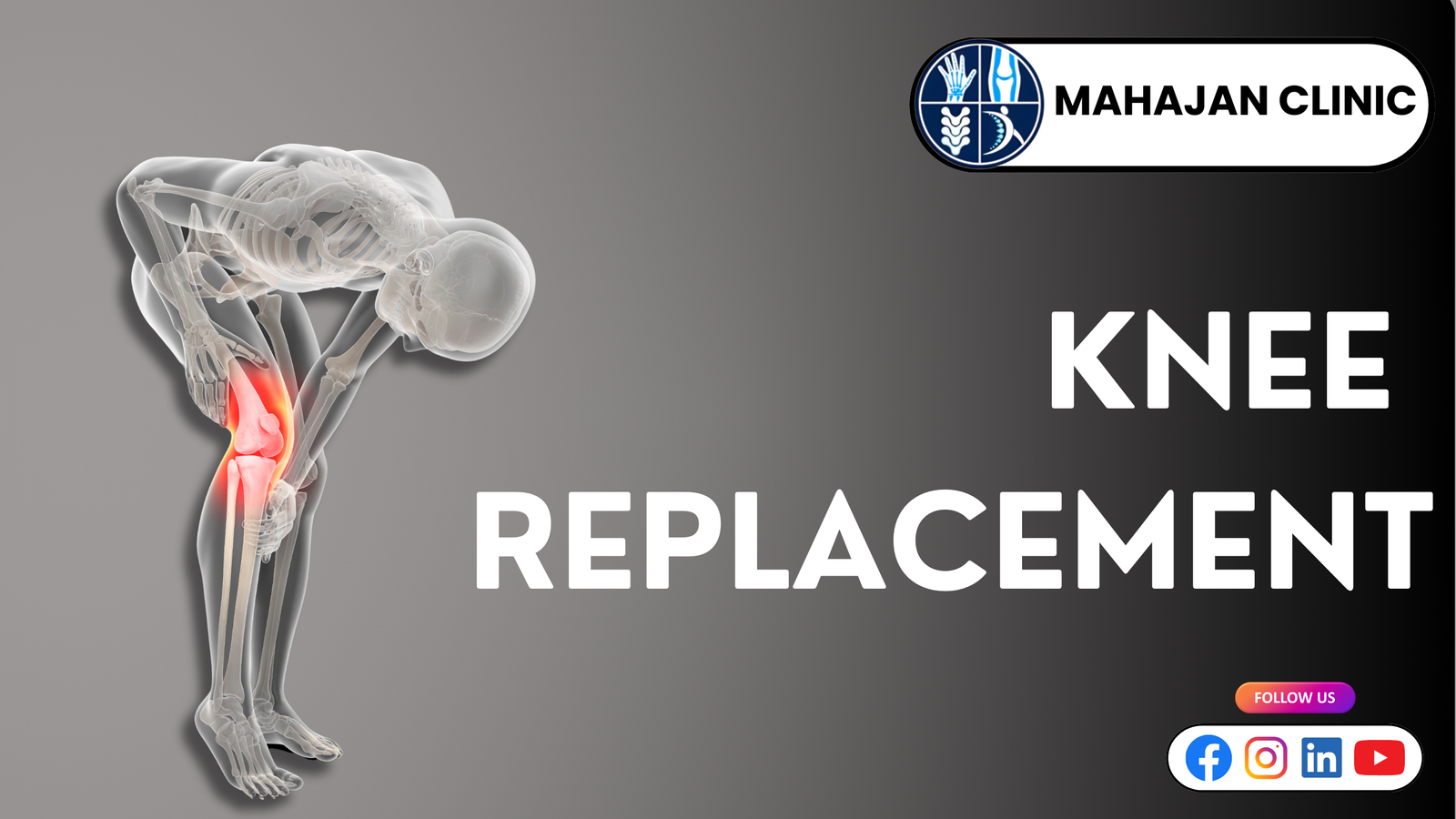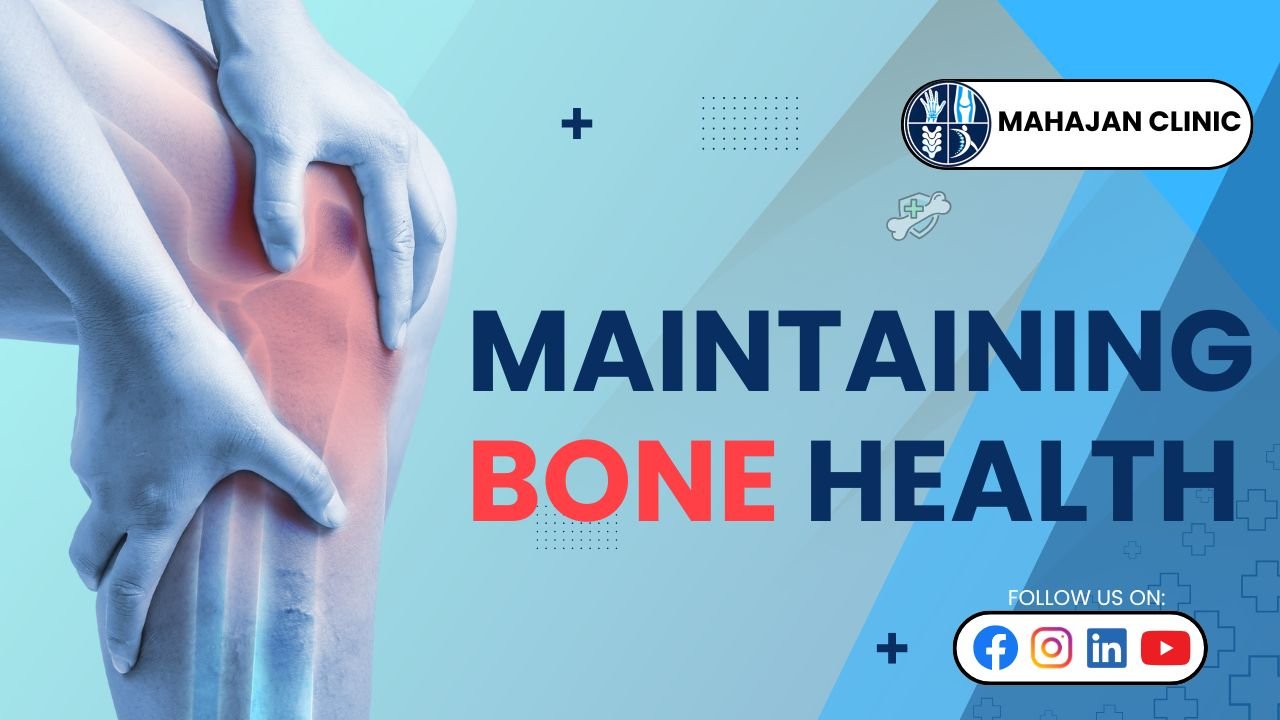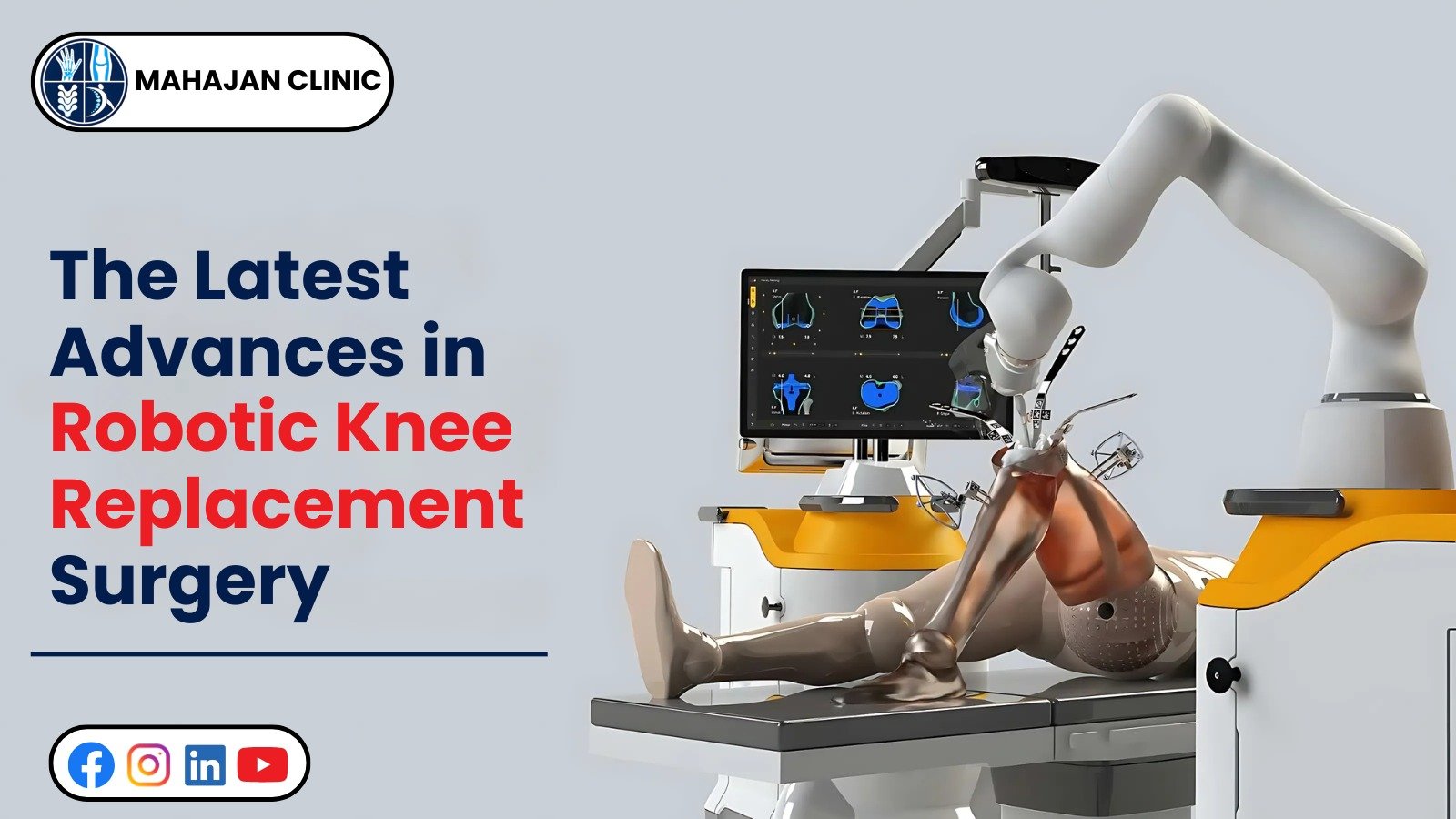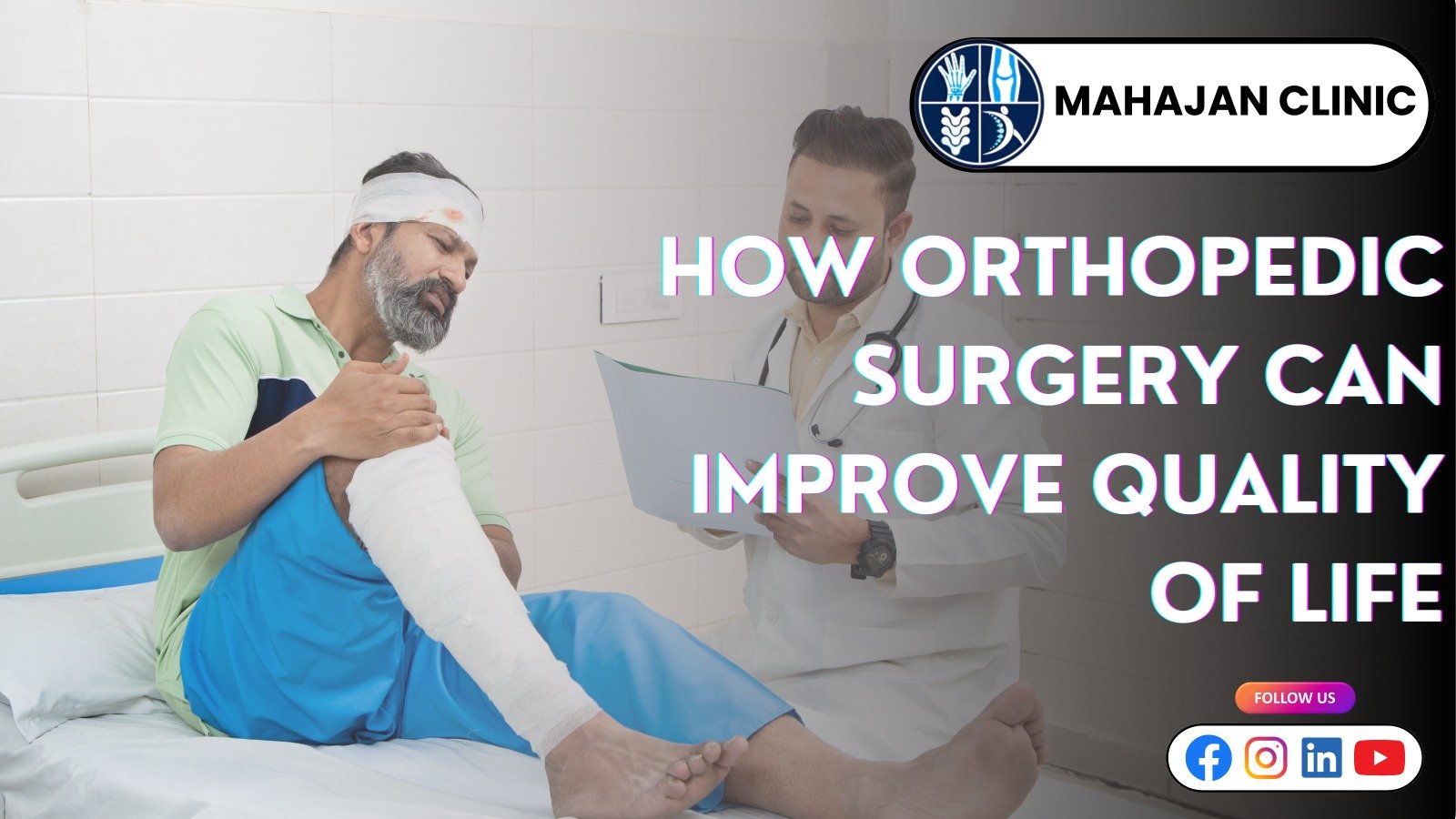Blog Details

How Orthopaedic Surgeons Help Improve Mobility in Seniors
Our bodies naturally deteriorate with age, particularly the joints, bones, and muscles. Losing mobility is an inevitable process, but it doesn't have to be. Today's seniors want to continue being active well into old age because they are living longer. However, many people find that even simple tasks become exhausting due to persistent pain, stiffness, or limited movement in the knees, hips, spine, or shoulders.
That’s where an orthopaedic surgeon for seniors becomes invaluable. According to
Dr. Rakesh Mahajan at Mahajan Clinic, the goal of orthopaedic care for older adults is to help them regain their independence, confidence, and capacity to enjoy everyday life. It goes beyond simple surgery.
Why Mobility Declines with Age
Senior mobility problems are rarely the result of a single cause. Rather, they frequently stem from a confluence of factors like:
- Osteoarthritis or rheumatoid arthritis
- Osteoporosis-related fractures
- Past injuries that never fully healed
- Muscle weakness or balance issues
- Degeneration in spinal discs or joints
If treatment is not received, these issues may begin slowly but eventually get worse. In addition to affecting movement, limited mobility also has an impact on social interaction, mental health, and general health.
Role of Orthopaedic Surgeons in Senior Mobility
The musculoskeletal system, which includes the bones, joints, muscles, ligaments, and tendons, is the area of expertise for orthopaedic surgeons. However, their role becomes even more delicate and specialized when it comes to treating older adults. Here’s how an orthopaedic surgeon for seniors helps improve mobility:
1. Accurate Diagnosis of the Problem
Elderly people frequently experience overlapping problems. To determine the precise cause of limited mobility, an orthopaedic specialist performs physical examinations, a comprehensive review of medical history, and imaging (MRIs, X-rays).
2. Personalized Non-Surgical Treatment Plans
Not all patients require surgery. Orthopaedic care frequently begins with conservative measures such as:
- Physical therapy for strength and flexibility
- Joint injections to reduce inflammation
- Pain management techniques
- Assistive devices (walkers, braces, etc.)
- Nutritional guidance for joint and bone health
Without requiring surgery, these interventions aim to improve function and lessen pain.
3. Surgical Solutions When Necessary
Surgical options may be investigated when conservative measures are no longer effective. An expert orthopaedic surgeon for seniors guarantees that only when surgery is likely to result in a quantifiable improvement in mobility and quality of life is it advised.
Common surgeries include:
- Joint Replacement (knee, hip, or shoulder)
- Spinal decompression or fusion
- Arthroscopy for repairing soft tissues
- Fracture repair and bone reconstruction
Every procedure is specifically designed to fit the age, degree of activity, and general health of the senior.
Surgical Advances Tailored for Seniors
Orthopaedic surgery has advanced significantly, which is good news. Procedures nowadays are less intrusive, safer, and provide a faster recovery, particularly for elderly patients.
The following contemporary surgical developments are advantageous to older adults:
- Minimally invasive techniques: Less trauma, faster healing
- Better implants: Designed to last longer and move naturally
- Enhanced anesthesia protocols: Reduced complications
- Prehabilitation programs: Preparing patients in advance to ensure smoother recovery
These advancements guarantee that elderly patients are not only surviving surgery but also thriving following it.
Recovery and Rehabilitation: A Team Effort
Surgery is just one phase of the process. During rehabilitation, the true magic frequently occurs. A dedicated orthopaedic surgeon for seniors collaborates closely with pain management experts, physiotherapists, and caregivers to develop a comprehensive post-operative plan.
Rehab Focus Areas:
- Restoring range of motion
- Improving balance and posture
- Building strength
- Preventing falls during recovery
- Tracking progress and adjusting exercises
A positive outlook and family support can further improve results. Seniors who actively engage in their rehabilitation programs typically return to their mobility more quickly and with greater assurance.
Fall Prevention Strategies
Preventing falls, the main cause of injuries among older adults, is one of the main objectives of increasing senior mobility. Seniors can directly avoid these risks with the assistance of orthopaedic surgeons.
Among the fall prevention techniques are:
- Recommending proper footwear
- Suggesting home safety improvements (e.g., grab bars, non-slip flooring)
- Guiding balance and coordination exercises
- Adjusting medication if dizziness or weakness is present
- Using walking aids correctly
The likelihood of a fall and a potentially serious injury is greatly decreased by addressing both the environmental and physical factors.
Long-Term Benefits of Orthopaedic Care in Seniors
The advantages of improved or restored mobility go beyond just physical health. Seniors say they feel less nervous, more connected to others, and more independent. Without ongoing discomfort or limitations, they can return to their hobbies, see friends, and enjoy life.
Seeing an orthopaedic surgeon for seniors can also help in:
- Slowing the progression of chronic joint diseases
- Delaying or avoiding the need for assisted living
- Boosting cardiovascular health through increased physical activity
- Maintaining a healthy weight
- Supporting mental wellness and reducing depression
When Should a Senior See an Orthopaedic Surgeon?
Joint pain is frequently dismissed by older adults as a "normal" aspect of aging. However, better results are frequently obtained from early consultation. Indications that it's time to speak with an orthopaedic surgeon for seniors include:
- Persistent joint pain lasting more than a few weeks
- Difficulty walking, standing, or climbing stairs
- Swelling or stiffness that limits daily tasks
- Reduced balance and frequent stumbling
- Past fractures that haven't fully healed
Being proactive helps maintain independence and mobility before things worsen.
Family Support Makes a Difference
Seniors are greatly influenced by their family members to pursue treatment and adhere to post-operative care. Their participation can significantly enhance recovery results, whether it be through providing emotional support, attending consultations, or assisting with transportation.
Stress the long-term advantages—not just in mobility, but also in freedom and dignity—if your parent or other senior loved one appears hesitant to see a specialist.
Final Summary
One of the best indicators of older adults' quality of life is their level of mobility. Seniors can regain their independence, decrease their pain, and regain movement with the help of a reputable orthopaedic surgeon. Dr. Rakesh Mahajan at Mahajan Clinic is dedicated to providing older adults with individualized orthopaedic care. With decades of experience, he helps seniors stay active, safe, and involved in the life they love by fusing cutting-edge medical techniques with a compassionate approach.
